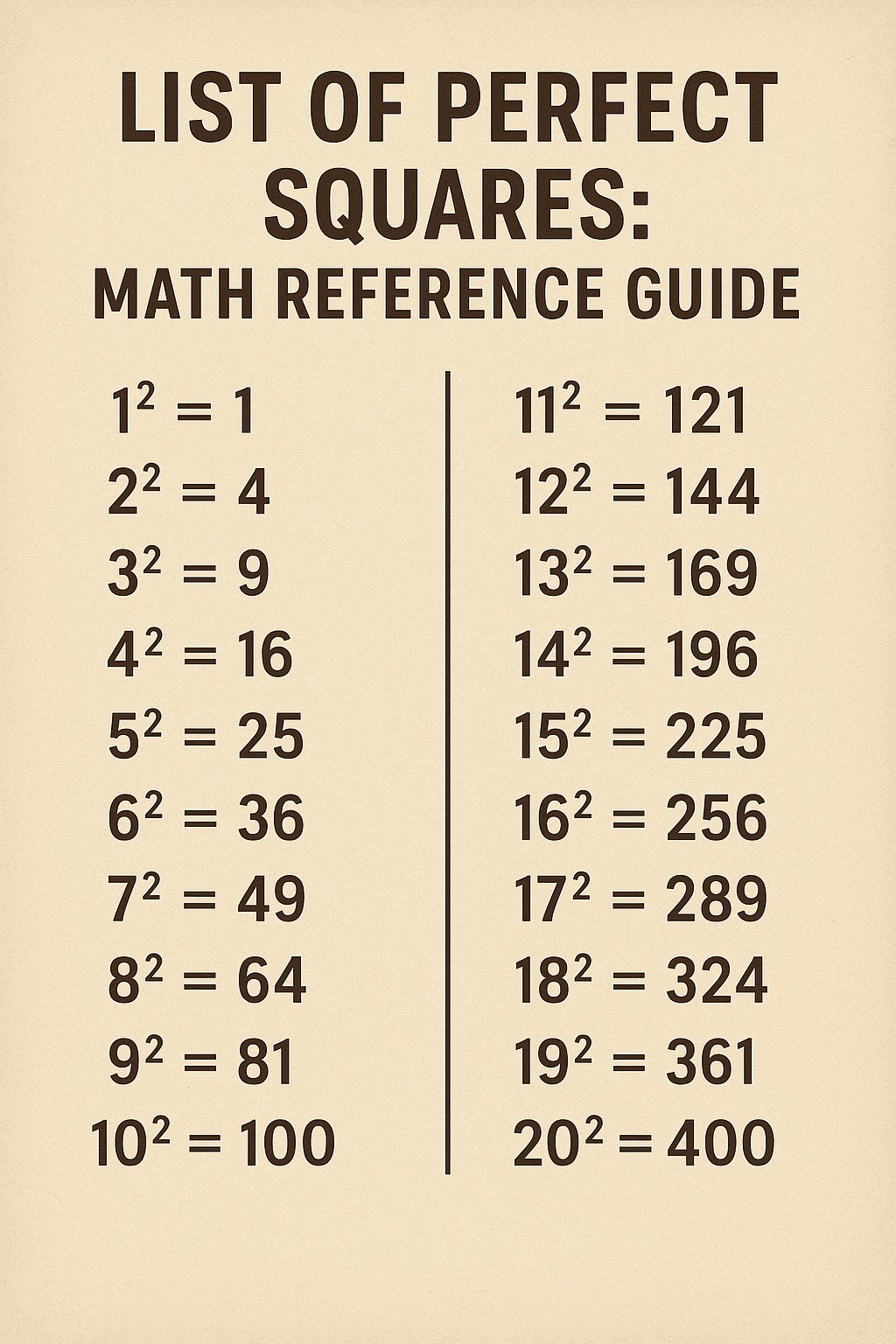What is a Perfect Square?
A perfect square is an integer that is the product of an integer with itself. For example, 9 is a perfect square because it is the product of 3 multiplied by 3. We write this as 3² = 9. This section provides an interactive way to understand this core concept.

Is Your Number a Perfect Square?
Perfect Squares Explorer
Instead of a static list, this tool allows you to dynamically generate and explore perfect squares. Use the slider to set the maximum base number and see the list of squares appear. Hover over any square to see its root. This helps build an intuition for how quickly square numbers grow.
Visualizing Patterns
Perfect squares aren't just a random sequence; they follow predictable and interesting patterns. The chart below visualizes their exponential growth. Click on the facts to see how these patterns work. Understanding these properties makes it easier to identify and work with square numbers.
The Ending Digit Rule
A perfect square can only end in the digits 0, 1, 4, 5, 6, or 9.
Sum of Odd Numbers
Any perfect square n² is the sum of the first n odd numbers (e.g., 4² = 16 = 1+3+5+7).
Where are Perfect Squares Used?
Perfect squares are a fundamental concept in mathematics and appear in many different areas. From geometry to algebra, recognizing and using them is a key skill. This section highlights some of the most common and important applications you'll encounter.
Geometry: Calculating Area
The area of a square is calculated by squaring the length of its side (side × side). If a square has a side length of 5 units, its area is 5² = 25 square units.
Algebra: Simplifying Radicals
Perfect squares are key to simplifying square roots. For example, to simplify √50, you find the largest perfect square factor, which is 25. So, √50 = √(25 × 2) = 5√2.
The Pythagorean Theorem
In a right-angled triangle, the square of the hypotenuse (the side opposite the right angle) is equal to the sum of the squares of the other two sides: a² + b² = c².
Test Your Knowledge
The best way to learn is by practicing. This quick quiz will help you sharpen your ability to quickly identify perfect squares. A new number will be generated after each answer. Can you get ten in a row correct?
Is the following number a perfect square?